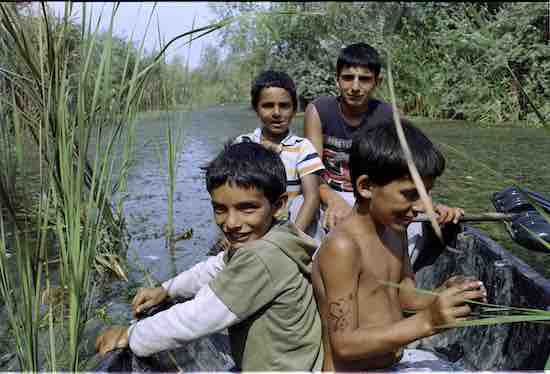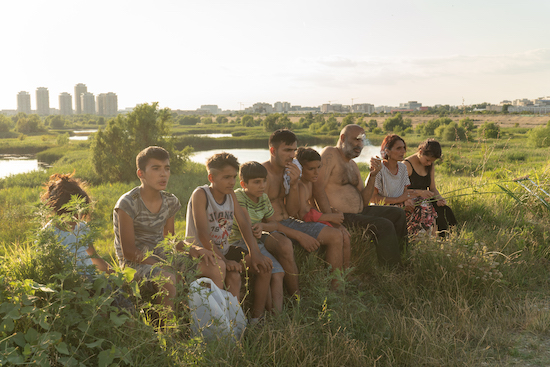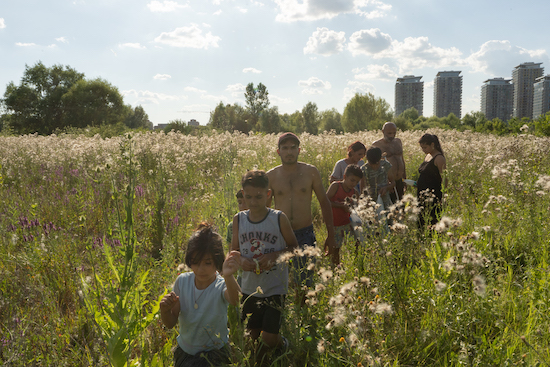Film: Acasă, My Home

Acasă, My Home, Radu Ciorniciuc’s debut feature documentary, is an incredibly intimate look at a family living (literally) on the fringes of Romanian society. Maybe his background as an investigative reporter enabled Ciorniciuc to become so deeply embedded in the daily lives of the Enache family — father Gică, mother Niculina and their nine children – who inhabit, and eventually leave, an abandoned water reservoir outside Bucharest. The resulting film is a sometimes troubling, always fascinating, portrait of a close, impoverished family forced to become part of a civilization they rejected two decades ago, for better and for worse.
From the start, the camera is right in the midst of the Enache kids, several of whom are paddling on a lake as older son Vali catches fish bare-handed. They’re a lively, rough-and-tumble bunch who may be acting out a little for the camera, but generally seem pretty happy. We’re then introduced to their shack-like home and compound, where pigeons, dogs, kittens, chickens and pigs roam around and eat together in peaceful, if messy, co-existence.

The first sign of trouble comes with a call to Gică’s cell phone (the only electronic device in sight) from someone giving him a heads-up about the imminent arrival of Social Services. The kids immediately run into the wilderness to hide, clearly something they’ve done before, as Niculina threatens to kill the authorities in various colorful ways if they take her children away.
One of the more fascinating aspects of the film is how close the Enaches are to downtown Bucharest, as shown by several aerial views. Highrise buildings are clearly visible in many shots of the family going about their rustic business. We find out that their “wilderness” will soon become a nature park (the largest in the EU), when the prime minister and his wife show up with a camera crew and several reporters. The Enaches are apparently well-known to the locals, especially the charismatic Gică, who — with his knowledge of the local plants and wildlife — has served as a nature guide to the area. Eventually, however, they must leave.

The authorities, especially a female social worker who registers the kids for school and find the family an apartment, clearly want to help, but the Enaches’ transition to civilized life in the city does not go smoothly. The kids attend school for the first time and are woefully behind in basics like reading and counting. Used to running wild and fishing without any kind of permit, they soon get into trouble, which infuriates Gică. He and Niculina, both in poor health, fight about handling the kids and whether to stay in the city as the squalor of their new home gets the family kicked out of the building. Though Vali, who acquires a girlfriend and works with the nature park crew, seems to be adjusting pretty well, he has to deal with his own difficulties, including a fraught relationship with his controlling father. In one poignant scene, young Rică—previously shown as a joyful and charming boy—tearfully expresses how much he misses his former life: “The city isn’t good for us at all. Like a prison.”
The film doesn’t present any easy answers or sides, showing the harsh reality of the family’s situation despite the good intentions of those trying to help them. It would be interesting to find out what has become of the Enaches since the film was shot (and perhaps we will). One can only hope for the best, despite what look like very tough odds.
Acasă, My Home opens in select theaters and virtual cinemas on Friday, January 15.
—Marina Zogbi

